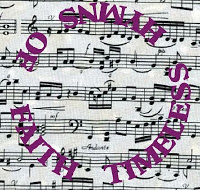TIMELESS HYMNS - A special feature where I highlight some of the hymns that have been featured previously in this blog. These entries are revised and expanded and shared again for your encouragement and challenge. This hymn was first shared here on November 3, 2008.
This Tuesday marks the 500th anniversary of one of the major turning points in Protestantism. In 1517 Martin Luther, with his growing belief that salvation is by faith alone, presented his concerns to Church officials in the form of ninety-five theses, a series of statements that presented a logical argument against the sale of indulgences. Tradition has it that these were nailed to the door of the Castle Church in Wittenberg, Germany on October 31, 1517. Many will celebrate the 500th anniversary of this event on Tuesday for In doing this he started the Reformation. Luther broke with Rome in 1521, refusing to retract his writings before the Diet of Worms. Subsequently, he was recognized as the leader of the German Reformation. In addition to skills as a writer, translator and preacher, Luther was an amateur musician. His thirty-seven hymns stand alongside his theological writings and his translation of the Bible into German as testaments of his creativity and intellectual ability. No hymn is identified with the Protestant Reformation more than his "A Mighty Fortress." Luther (1483-1546) left a body of congregational songs that both defined the Lutheran confessional tradition and became truly ecumenical in influence. This week's hymn has been called the "Battle Hymn of the Reformation" for the effect it had in increasing the support for the Reformers' cause. Based on Psalm 46, the hymn is a celebration of the sovereign power of God over all earthly and spiritual forces, and of the sure hope we have in Him because of Christ. After its publication, it gained immense popularity throughout Reformed Europe. Today the truths of the Bible are again under attack by politicians, organizations and the liberal media. Many pastors and religious leaders twist and change the scriptures to defend and advance their anti-Biblical agendas. Those who defend the truth of the Bible are attacked, criticized and marked as being intolerant. "For still our ancient foe doth seek to work us woe; His craft and power are great, and, armed with cruel hate,on earth is not his equal." "And though this world, with devils filled, should threaten to undo us, we will not fear, for God hath willed His truth to triumph through us: The Prince of Darkness grim, we tremble not for him; His rage we can endure, for lo, his doom is sure." As believers we do face difficult times, but we know how it all will end. Take heart my friend, with God we are on the victory side. I am reminded of the scripture that spoke so clearly to Luther when he faced uncertain times and took a stand for the truth many centuries ago. "God is our Refuge and Strength, a very present Help in trouble." Psalm 46:1. As this week the stand that Luther took 500 years ago is celebrated, take time to review the words of his great hymn and then be encouraged as you claim them and place your trust in God, our Mighty Fortress.
1. A mighty fortress is our God,
a bulwark never failing;
Our helper He, amid the flood of mortal ills prevailing:
For still our ancient foe doth seek to work us woe;
His craft and power are great, and,
armed with cruel hate,
On earth is not his equal.
2. Did we in our own strength confide,
our striving would be losing;
Were not the right Man on our side, t
he Man of God's own choosing:
Dost ask who that may be? Christ Jesus, it is He;
Lord Sabaoth, His Name, from age to age the same,
And He must win the battle.
3. And though this world, with devils filled,
hould threaten to undo us,
We will not fear, for God hath willed His truth
to triumph through us:
The Prince of Darkness grim, we tremble not for him;
His rage we can endure, for lo,
his doom is sure,
One little word shall fell him.
4. That word above all earthly powers,
no thanks to them, abideth;
The Spirit and the gifts are ours through Him
Who with us sideth:
Let goods and kindred go, this mortal life also;
The body they may kill:
God's truth abideth still,
His kingdom is forever.
Listen to it here. LISTEN


















